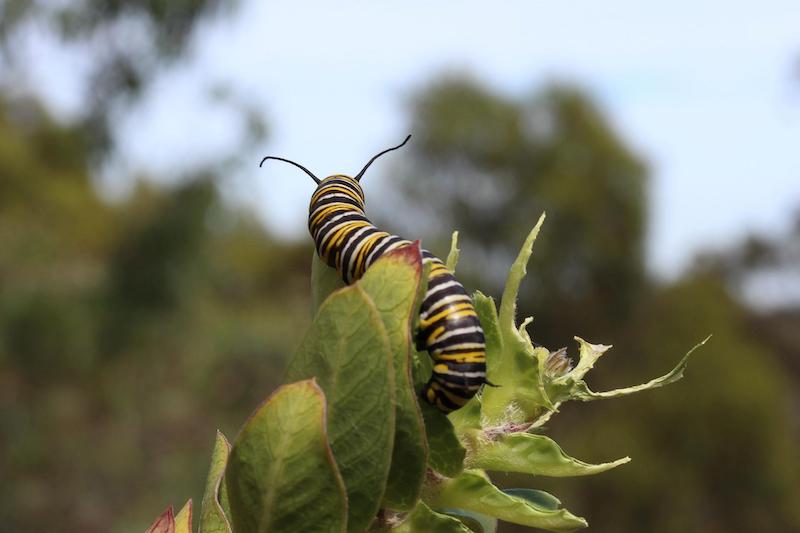Milkweed is not generally favored by foraging animals, but animals will eat what is available if they are hungry. Deer and rabbits have been known to eat Milkweed, even though this plant is poisonous to most other animals. Milkweed is favored by butterflies and is generally eaten by insects more than animals.

Animals tend to leave Milkweed alone because it is only available to eat during the spring and summer, when more preferred food choices are abundant. Milkweed grows as an herbaceous perennial in most areas, and the growth dies back when the weather turns cold, so Milkweed is not available during the winter months. According to Rutgers University, this plant is Seldom Severely Damaged on their rating scale from Rarely Damaged to Frequently Severely Damaged.
| Rarely Damaged |
| Seldom Severely Damaged |
| Occasionally Severely Damaged |
| Frequently Severely Damaged |
Keeping Deer Away From Milkweed
While deer and rabbits are likely to leave Milkweed alone, you can take steps to protect your plants from foraging animals. Physical barriers like fencing can keep animals at bay. Scent-based deterrents are another option to keep animals away and protect your plants. A scent-based repellent may need to be reapplied after the scent wears off or is rinsed away in a rainstorm, so be prepared to reapply as needed.
Will Milkweed Come Back After Deer Eat Them?
Milkweed plants will likely come back if deer eat them. Plants that sustain significant damage may not grow back, but if less than one-third of a plant is ingested, it will likely bounce back. Damaged plants may not push out as many flowers, as the plant works to recover. Help plants recover from animal damage by pruning away broken or chewed stems and ensuring they receive plenty of light and water.

Sources: Rutgers New Jersey Agricultural Experiment Station ‘Landscape Plants Rated by Deer Resistance’ 2018
 |
Author Alison Cotsonas - Published 08-07-2022 |


